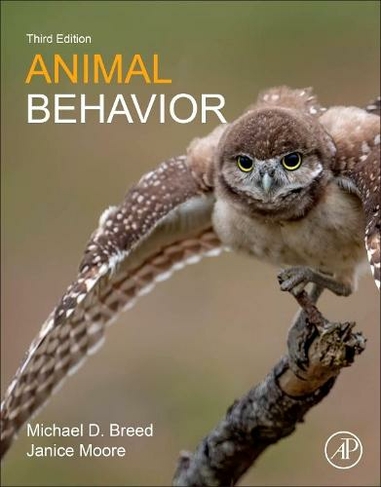
Quantity
Description
Also available on eBook for £57.99. Click here to purchase from Rakuten Kobo
About the Author
After receiving his PhD from the University of Kansas in 1977, Dr. Breed began work as a faculty member at the University of Colorado, Boulder and taught as a Professor in the Department of Ecology and Evolutionary Biology until his retirement in 2019. He taught courses in general biology, animal behavior, insect biology, and tropical biology. His research program focused on the behavior and ecology of social insects, and he worked on ants, bees, and wasps. He studied many aspects of social behavior, including nestmate recognition, division of labor, the genetics of colony defense, the behavior of defensive bees, and communication during colony defense. Dr. Breed was the Executive Editor of the scientific journals Animal Behaviour from 2006-2009 and Insectes Sociaux from 2014-2018. As an undergraduate, I was inspired by parasitologist Clark P. Read to think about the ecology and evolution of parasites in new ways. I was especially excited to learn that parasites affected animal behavior, another favorite subject area. Most biologists outside the world of parasitology were not interested in parasites; they were relegated to a nether world someplace between the biology of free-living organisms and medicine. After peregrination through more than one graduate program, I completed my PhD studying parasites and behavior at the University of New Mexico. I did postdoctoral work on parasite community ecology with Dan Simberloff at Florida State University, and then accepted a faculty position at Colorado State University, where I have remained since 1983. I am currently a Professor in the Department of Biology where I teach courses in invertebrate zoology, animal behavior, and history of medicine. I study a variety of aspects of parasite ecology and host behavior ranging from behavioral fever and transmission behavior to the ecology of introduced parasite species.
More Details
- Contributor: Michael D. Breed
- Imprint: Academic Press Inc
- ISBN13: 9780128195581
- Number of Pages: 600
- Packaged Dimensions: 216x276mm
- Packaged Weight: 1560
- Format: Paperback
- Publisher: Elsevier Science Publishing Co Inc
- Release Date: 2022-02-16
- Binding: Paperback / softback
- Biography: After receiving his PhD from the University of Kansas in 1977, Dr. Breed began work as a faculty member at the University of Colorado, Boulder and taught as a Professor in the Department of Ecology and Evolutionary Biology until his retirement in 2019. He taught courses in general biology, animal behavior, insect biology, and tropical biology. His research program focused on the behavior and ecology of social insects, and he worked on ants, bees, and wasps. He studied many aspects of social behavior, including nestmate recognition, division of labor, the genetics of colony defense, the behavior of defensive bees, and communication during colony defense. Dr. Breed was the Executive Editor of the scientific journals Animal Behaviour from 2006-2009 and Insectes Sociaux from 2014-2018. As an undergraduate, I was inspired by parasitologist Clark P. Read to think about the ecology and evolution of parasites in new ways. I was especially excited to learn that parasites affected animal behavior, another favorite subject area. Most biologists outside the world of parasitology were not interested in parasites; they were relegated to a nether world someplace between the biology of free-living organisms and medicine. After peregrination through more than one graduate program, I completed my PhD studying parasites and behavior at the University of New Mexico. I did postdoctoral work on parasite community ecology with Dan Simberloff at Florida State University, and then accepted a faculty position at Colorado State University, where I have remained since 1983. I am currently a Professor in the Department of Biology where I teach courses in invertebrate zoology, animal behavior, and history of medicine. I study a variety of aspects of parasite ecology and host behavior ranging from behavioral fever and transmission behavior to the ecology of introduced parasite species.
Delivery Options
Home Delivery
Store Delivery
Free Returns
We hope you are delighted with everything you buy from us. However, if you are not, we will refund or replace your order up to 30 days after purchase. Terms and exclusions apply; find out more from our Returns and Refunds Policy.
